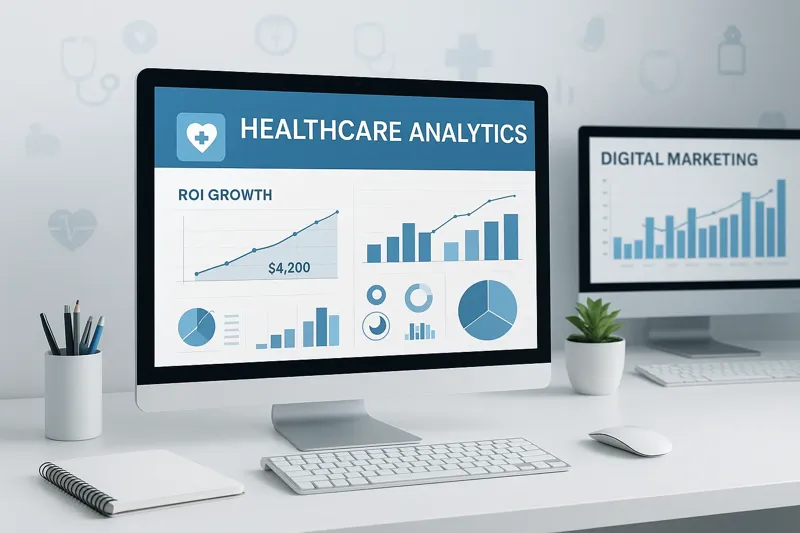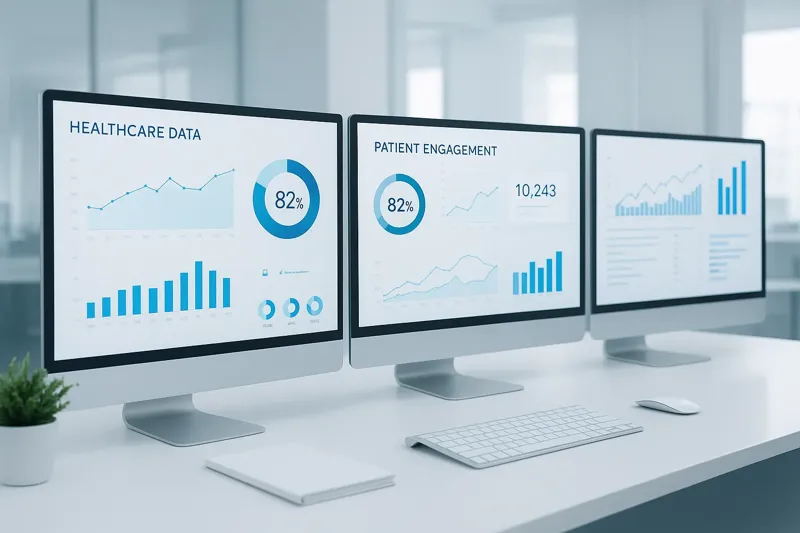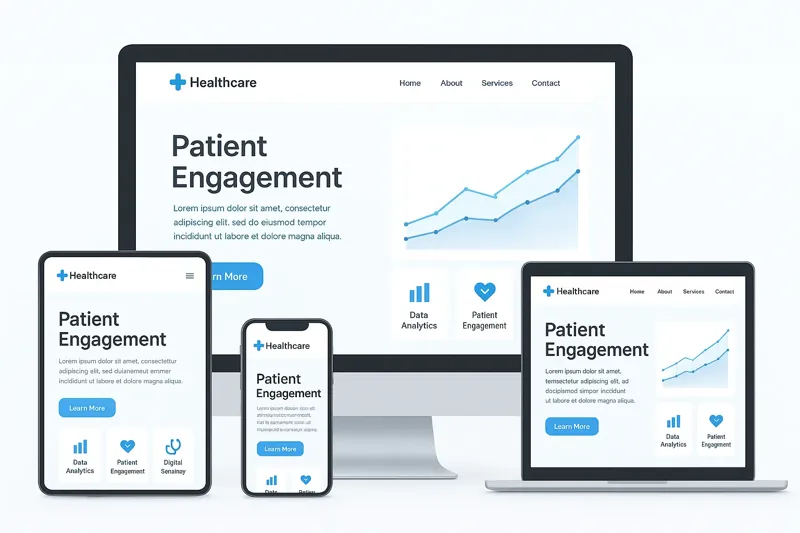Why Healthcare Compliance Is Crucial for Digital Marketers in 2026
Overview of Healthcare Marketing Regulations
Healthcare marketing is governed by strict regulations including HIPAA (Health Insurance Portability and Accountability Act) and GDPR (General Data Protection Regulation). HIPAA mandates protection of patient health information, prohibiting sharing identifiable data without explicit consent and requiring encrypted, secure platforms to handle sensitive information. GDPR extends data privacy standards globally, emphasizing transparency, explicit consent, data minimization, and patient rights to access or delete their personal data.
Importance of Compliance for Patient Trust and Legal Safety
Compliance with these regulations is essential for safeguarding patient privacy and maintaining trust. Patients are increasingly aware of their data rights and expect transparency regarding data usage. Adhering to legal standards prevents costly penalties, potential lawsuits, and reputational damage. Explicit consent for marketing use of patient stories, images, or testimonials is an absolute requirement. Secure, compliant digital tools and ongoing staff training help prevent inadvertent breaches.
Role of Compliance in Building Brand Credibility and Avoiding Penalties
Beyond legal obligations, compliance is a foundation for brand credibility and consumer trust. Transparent privacy policies and ethical marketing practices foster patient confidence and differentiate healthcare brands in a competitive marketplace. Strict approval workflows and regular audits ensure materials meet regulatory standards and align with organizational values. Non-compliance risks fines up to millions of dollars and erosion of public trust, whereas a compliance-first approach supports sustainable growth and positive patient engagement in 2026 and beyond.
Healthcare Digital Marketing Compliance Key Facts
- HIPAA mandates explicit written consent before sharing identifiable patient data, including stories and images.
- Healthcare marketers must use secure, encrypted platforms and HIPAA-compliant communication channels to safeguard PHI.
- Regular compliance audits and staff training are essential to maintain adherence to HIPAA and GDPR regulations.
- GDPR compliance requires transparency, explicit consent, patient rights, and data minimization for healthcare data processing.
- Obtaining signed consent is crucial before using patient testimonials or images in marketing materials.
- Healthcare marketing teams need continuous training on current regulations, ethical advertising, and new technology to prevent violations.
- Selecting verified, compliant marketing platforms with strong security measures, including BAAs, is vital for protecting patient data.
- Implementing content approval and real-time monitoring tools ensures ongoing compliance with healthcare advertising standards.
- Transparency and patient-centric messaging foster trust, meet legal standards, and enhance brand credibility in healthcare marketing.
- Patients' rights to access, correct, or delete their data must be incorporated into healthcare marketing practices under GDPR.
1. Implement Robust HIPAA Compliance Protocols

What are the key HIPAA requirements for healthcare digital marketing?
Healthcare digital marketing must rigorously protect Protected Health Information (PHI). HIPAA mandates explicit written consent before sharing any identifiable patient data. This includes the use of patient stories, testimonials, or images in marketing materials, which require documented patient authorization to avoid violations.
Marketers must employ secure, encrypted digital platforms and tools to handle PHI safely. Utilizing HIPAA-compliant communication channels ensures that sensitive patient data is not exposed or transmitted insecurely.
Common marketing tools such as online forms, analytics platforms, and email services must be properly configured to prevent unintentional PHI exposure. Many popular digital platforms are not inherently HIPAA-compliant unless configured correctly or replaced by healthcare-specific solutions.
Engaging HIPAA-compliant vendors is crucial. Healthcare organizations should sign Business Associate Agreements (BAAs) with third-party providers to ensure they uphold privacy and security standards. This step mitigates risk and reinforces a compliance-first approach.
Regular Healthcare marketing compliance audits and staff training on HIPAA regulations reinforce adherence and reduce exposure to potential penalties. Overall, strict consent protocols combined with secure technology and vendor management form the backbone of a compliant healthcare marketing strategy.
2. Ensure GDPR Compliance for Global Patient Data
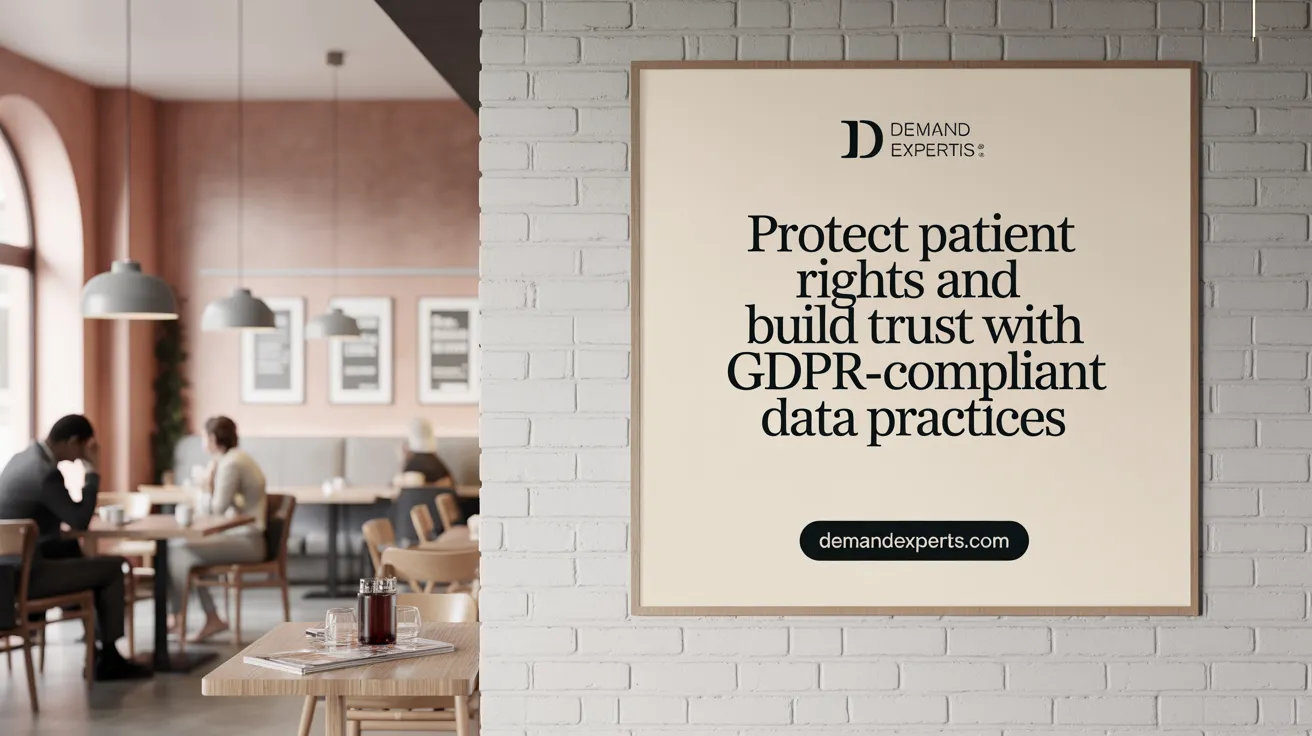
How should healthcare marketers comply with GDPR in 2026?
Healthcare marketers operating in 2026 must navigate GDPR regulations for healthcare data with a focus on transparency, consent, patient rights, and data minimization to maintain trust and avoid penalties.
Transparency in data collection and processing
Marketers are required to clearly disclose what personal data is being collected from patients and how it will be used. This includes detailing the purpose of data collection and any third parties involved. Clear privacy policies in healthcare marketing must communicate these details in understandable language to patients.
Obtaining explicit consent for data usage
Before processing any personal health information, marketers must secure explicit, informed consent from patients. Consent mechanisms should be unambiguous and involve an opt-in process rather than passive acceptance. This is vital when using patient testimonials ethically or digital tracking tools.
Rights of patients to access, correct, or delete their data
Patients have the legal right under GDPR to access the personal data held about them. They can request corrections to inaccuracies or demand that their data be deleted where appropriate. Healthcare marketers must have processes in place to quickly address and fulfill these requests, following GDPR and Healthcare Marketing regulations.
Data minimization principles to reduce liability
Marketers should adopt data minimization by collecting only the necessary personal data required for their specific marketing objectives. Limiting data storage and avoiding unnecessary sensitive data reduces compliance risk and enhances patient privacy as recommended in privacy-conscious healthcare targeting.
Updating privacy policies to reflect GDPR requirements
Regular reviews and updates to privacy policies are required to ensure ongoing adherence to GDPR standards and evolving regulations. This includes incorporating mechanisms for consent withdrawal and updated rights as per regulatory changes, as highlighted in updating privacy policies for GDPR.
Adhering to these practices ensures healthcare marketing remains compliant with GDPR, protecting patient data and strengthening patient relationships through trust and transparency.
3. Develop and Enforce Clear Consent Procedures
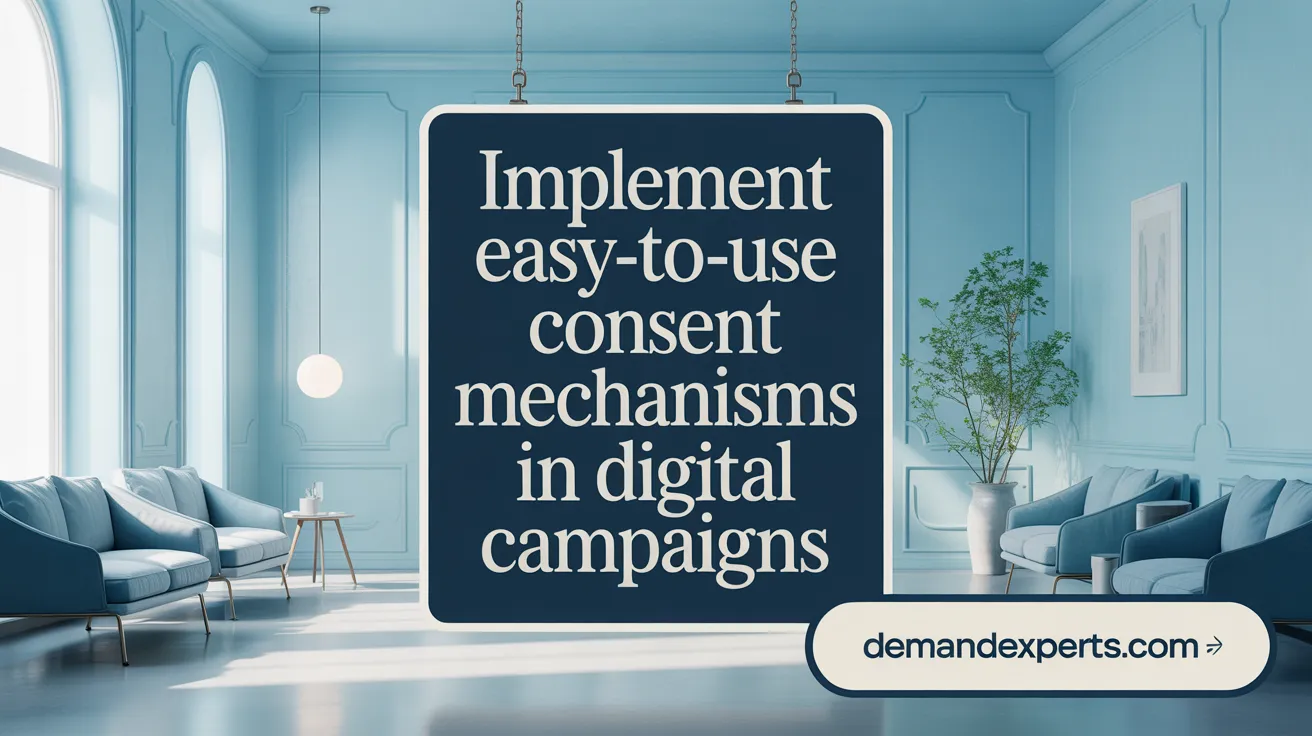
Written consent for patient testimonials and use of images
Obtaining explicit written consent is essential before featuring patient stories, testimonials, or images in any healthcare marketing materials. This practice complies with HIPAA guidelines and GDPR regulations designed to protect protected health information (PHI). Consent should be documented carefully to avoid privacy violations and legal repercussions.
Consent mechanisms for email marketing and messaging apps
Before sending email newsletters, appointment reminders, or health tips via messaging apps such as WhatsApp, explicit patient opt-in is mandatory. These mechanisms should clearly inform patients about the purpose of communications and provide easy ways to opt-out, reinforcing transparency and patient trust. For more on this, see HIPAA-compliant digital tools and Consent mechanisms under GDPR.
Avoidance of unsolicited communications without opt-in
Healthcare marketers must avoid sending any marketing content to patients who have not provided prior consent. Unsolicited messages risk breaching data privacy regulations and can damage brand reputation. Compliance requires proactive opt-in and documented permission before initiating any outreach, as emphasized in Healthcare marketing compliance audits.
Processes to audit and document consent records
Regular audits of consent records, with detailed documentation, help ensure ongoing compliance. This includes verifying that all required permissions are current and accessible, and that any changes or withdrawals of consent are promptly handled and recorded. Refer to Healthcare marketing compliance audits for best practices.
Integration of consent collection into digital workflows
Incorporating consent collection into digital workflows optimizes compliance. Secure online forms, gating of educational content, and automated consent tracking enable marketing teams to efficiently manage permissions while maintaining regulatory adherence. Leveraging HIPAA-compliant marketing tools ensures patient data is protected during these processes. For detailed guidance, see Digital marketing HIPAA compliance.
These practices collectively establish a robust consent framework crucial for compliant, ethical, and patient-centric healthcare marketing in 2026. For a broader perspective on evolving standards and strategies, consult resources on Healthcare marketing compliance and 2026 healthcare marketing strategy.
4. Train Marketing Teams on Compliance and Ethical Standards

How can healthcare marketers ensure their teams stay compliant with regulations?
Healthcare marketers can maintain compliance by implementing regular, comprehensive training for compliance in healthcare marketing programs focused on current regulations such as HIPAA guidelines, GDPR regulations, and region-specific laws like India’s Digital Personal Data Protection Act (DPDPA) (Healthcare marketing ethics 2026). These training sessions should emphasize the importance of protecting patient data, securing explicit patient consent in healthcare marketing, and respecting data minimization principles.
Understanding ethical advertising guidelines is equally critical. Teams must be educated on truthful health claims, avoidance of fear-mongering or exaggerated outcomes, and the necessity of transparent disclosures, such as paid partnership labels in line with FTC regulations.
Marketing leadership plays a pivotal role by fostering accountability and collaboration between marketing, legal, and compliance departments. Establishing clear policies, workflows, and approval processes helps reduce risks of breaches.
Emerging regulatory updates in 2026 require continuous awareness; therefore, ongoing education and healthcare marketing compliance audits should be institutionalized. The integration of AI tools for marketing compliance supports automating claim verification, content audits, and reporting but should always be complemented by human oversight to prevent ethical or regulatory violations.
This compliance-first culture not only mitigates legal risks but also reinforces patient trust and brand credibility essential for successful healthcare marketing strategies in an increasingly regulated environment.
5. Use Secure, Verified Marketing Platforms and Technology

What should digital marketers look for in compliant marketing technology?
In healthcare marketing, selecting technology that ensures compliance with data privacy laws such as HIPAA Compliance in Marketing and GDPR regulations for healthcare data is mandatory. Platforms must offer stringent security measures including end-to-end encryption to safeguard Protected Health Information (PHI). A critical step is verifying that all third-party vendors involved in data handling have signed Business Associate Agreements (BAAs) in healthcare, legally binding them to maintain HIPAA compliance.
Standard digital marketing tools like some analytics platforms often lack adequate safeguards for healthcare data. Healthcare marketers should avoid these unless properly configured to exclude PHI or acquire healthcare-specific versions designed for HIPAA-compliant marketing tools.
Privacy-conscious targeting methods gain importance as regulatory frameworks tighten. Contextual advertising in healthcare — which targets audiences based on content consumption rather than personal data — is an effective strategy to meet both compliance and marketing goals.
Additionally, ensuring communication platforms such as email services, chatbots, and appointment scheduling tools comply with data privacy standards is essential. Encryption, secure access controls, and explicit patient consent processes must be integrated throughout digital marketing workflows.
By prioritizing secure, verified marketing technology, healthcare marketers can build trust, ensure patient privacy, and avoid legal penalties while delivering effective campaigns.
6. Implement Rigorous Content Approval and Monitoring Processes

How can healthcare digital marketers manage content compliance effectively?
Effective management of healthcare marketing compliance content compliance hinges on the establishment of clear pre-approval workflows. All social media posts, advertisements, and digital content must undergo thorough review by compliance and legal professionals prior to publication. This step prevents dissemination of non-compliant or unauthorized material.
Verification of medical claims is essential to uphold credibility and avoid misinformation. Healthcare marketers should ensure claims are vetted and supported by qualified medical professionals or peer-reviewed evidence, following ethical advertising guidelines.
Brand compliance plays an important role; maintaining messaging consistency and visual identity aligned with regulatory and ethical standards strengthens trust and brand integrity.
Regular audits are critical — they help detect compliance gaps, unauthorized content, or deviations from policy. Conducting periodic campaign Healthcare marketing compliance audits enables swift corrective actions and continuous improvement.
Advanced AI-powered tools now offer real-time compliance monitoring by automating pre-flight checks, claim verification, disclosure management, version control, and compliance reporting. These AI solutions provide alert systems and generate audit-ready records, easing the burden on compliance teams while maintaining speed and accuracy as described in AI-driven compliance platforms.
Implementing these layered processes ensures healthcare digital marketing remains compliant, ethical, and effective in an evolving regulatory landscape.
7. Prioritize Transparency and Patient-Centric Marketing Practices

What role does transparency play in healthcare marketing compliance?
Transparency is fundamental to building and maintaining patient trust while ensuring regulatory compliance in healthcare marketing compliance. Clear disclosure of paid partnerships and affiliations within marketing materials is essential to meet legal standards and ethical guidelines, preventing potential fines and reputational damage as outlined in Marketing compliance overview.
Ethical use of patient testimonials requires explicit, HIPAA-compliant consent and, preferably, anonymization to protect individual privacy, adhering to HIPAA guidelines. Marketers must avoid fear-mongering and making exaggerated or unsubstantiated claims about outcomes, which undermine credibility and violate healthcare marketing best practices.
Transparent privacy policies are critical; they must communicate clearly how patient data is collected, used, and protected, adhering to laws such as HIPAA guidelines in marketing, GDPR regulations for healthcare data, and Healthcare data privacy laws. This open approach reassures patients and stakeholders while fulfilling legal obligations.
Looking ahead, healthcare marketers must prepare for stricter regulations governing AI-driven marketing tools. These include requirements for transparency in AI-generated content, clear disclosures, and patient-centric engagement strategies as discussed in AI and data privacy in healthcare and Healthcare marketing ethics 2026. Such innovations demand heightened responsibility to maintain trust and comply with evolving frameworks.
By embedding transparency and patient-centered approaches in all marketing efforts, healthcare organizations not only ensure compliance but also strengthen brand loyalty and communication effectiveness, following transparent patient-centric marketing.
Staying Ahead with Compliance: A Strategic Imperative for Healthcare Digital Marketers
Recap of Essential Compliance Tips for 2026
Healthcare digital marketers must rigorously observe HIPAA and GDPR mandates, focusing on protecting patient data privacy and security. Key practices include obtaining explicit written consent before using patient stories or testimonials, employing HIPAA-compliant digital tools, and maintaining transparent privacy policies. Regular team training, campaign audits, and strict approval workflows—particularly for social media content—are vital to avoid compliance breaches.
Navigating the Evolving Regulatory Landscape
The regulatory environment is becoming increasingly complex with new AI-driven data privacy rules and growing international harmonization efforts. Marketers must stay informed on updates such as the European Health Data Space Regulation and emerging AI content disclosure requirements. Proactive adaptation to these changes is crucial to mitigate risks associated with penalties, legal actions, or loss of reputation.
Compliance as a Driver of Brand Trust and Competitive Edge
Adherence to compliance standards is not merely a legal necessity but a strategic asset. It fosters patient trust through ethical marketing, transparency in data use, and respect for privacy rights. This trust translates into stronger brand credibility and improved patient engagement, setting compliant organizations apart in the competitive healthcare market.
Embracing Proactive, Patient-Centered Compliance
Healthcare marketers are encouraged to adopt patient-focused compliance frameworks that prioritize transparent communication, consent, and data minimization. Implementing these strategies promotes ethical, patient-centric marketing that aligns with evolving regulations, ultimately supporting sustainable growth and enhanced brand reputation in 2026 and beyond.
Why Healthcare Compliance Is Crucial for Digital Marketers in 2026
Overview of Healthcare Marketing Regulations
Healthcare marketing is governed by strict regulations including HIPAA (Health Insurance Portability and Accountability Act) and GDPR (General Data Protection Regulation). HIPAA mandates protection of patient health information, prohibiting sharing identifiable data without explicit consent and requiring encrypted, secure platforms to handle sensitive information. GDPR extends data privacy standards globally, emphasizing transparency, explicit consent, data minimization, and patient rights to access or delete their personal data.
Importance of Compliance for Patient Trust and Legal Safety
Compliance with these regulations is essential for safeguarding patient privacy and maintaining trust. Patients are increasingly aware of their data rights and expect transparency regarding data usage. Adhering to legal standards prevents costly penalties, potential lawsuits, and reputational damage. Explicit consent for marketing use of patient stories, images, or testimonials is an absolute requirement. Secure, compliant digital tools and ongoing staff training help prevent inadvertent breaches.
Role of Compliance in Building Brand Credibility and Avoiding Penalties
Beyond legal obligations, compliance is a foundation for brand credibility and consumer trust. Transparent privacy policies and ethical marketing practices foster patient confidence and differentiate healthcare brands in a competitive marketplace. Strict approval workflows and regular audits ensure materials meet regulatory standards and align with organizational values. Non-compliance risks fines up to millions of dollars and erosion of public trust, whereas a compliance-first approach supports sustainable growth and positive patient engagement in 2026 and beyond.
Healthcare Digital Marketing Compliance Key Facts
- HIPAA mandates explicit written consent before sharing identifiable patient data, including stories and images.
- Healthcare marketers must use secure, encrypted platforms and HIPAA-compliant communication channels to safeguard PHI.
- Regular compliance audits and staff training are essential to maintain adherence to HIPAA and GDPR regulations.
- GDPR compliance requires transparency, explicit consent, patient rights, and data minimization for healthcare data processing.
- Obtaining signed consent is crucial before using patient testimonials or images in marketing materials.
- Healthcare marketing teams need continuous training on current regulations, ethical advertising, and new technology to prevent violations.
- Selecting verified, compliant marketing platforms with strong security measures, including BAAs, is vital for protecting patient data.
- Implementing content approval and real-time monitoring tools ensures ongoing compliance with healthcare advertising standards.
- Transparency and patient-centric messaging foster trust, meet legal standards, and enhance brand credibility in healthcare marketing.
- Patients' rights to access, correct, or delete their data must be incorporated into healthcare marketing practices under GDPR.
1. Implement Robust HIPAA Compliance Protocols

What are the key HIPAA requirements for healthcare digital marketing?
Healthcare digital marketing must rigorously protect Protected Health Information (PHI). HIPAA mandates explicit written consent before sharing any identifiable patient data. This includes the use of patient stories, testimonials, or images in marketing materials, which require documented patient authorization to avoid violations.
Marketers must employ secure, encrypted digital platforms and tools to handle PHI safely. Utilizing HIPAA-compliant communication channels ensures that sensitive patient data is not exposed or transmitted insecurely.
Common marketing tools such as online forms, analytics platforms, and email services must be properly configured to prevent unintentional PHI exposure. Many popular digital platforms are not inherently HIPAA-compliant unless configured correctly or replaced by healthcare-specific solutions.
Engaging HIPAA-compliant vendors is crucial. Healthcare organizations should sign Business Associate Agreements (BAAs) with third-party providers to ensure they uphold privacy and security standards. This step mitigates risk and reinforces a compliance-first approach.
Regular Healthcare marketing compliance audits and staff training on HIPAA regulations reinforce adherence and reduce exposure to potential penalties. Overall, strict consent protocols combined with secure technology and vendor management form the backbone of a compliant healthcare marketing strategy.
2. Ensure GDPR Compliance for Global Patient Data

How should healthcare marketers comply with GDPR in 2026?
Healthcare marketers operating in 2026 must navigate GDPR regulations for healthcare data with a focus on transparency, consent, patient rights, and data minimization to maintain trust and avoid penalties.
Transparency in data collection and processing
Marketers are required to clearly disclose what personal data is being collected from patients and how it will be used. This includes detailing the purpose of data collection and any third parties involved. Clear privacy policies in healthcare marketing must communicate these details in understandable language to patients.
Obtaining explicit consent for data usage
Before processing any personal health information, marketers must secure explicit, informed consent from patients. Consent mechanisms should be unambiguous and involve an opt-in process rather than passive acceptance. This is vital when using patient testimonials ethically or digital tracking tools.
Rights of patients to access, correct, or delete their data
Patients have the legal right under GDPR to access the personal data held about them. They can request corrections to inaccuracies or demand that their data be deleted where appropriate. Healthcare marketers must have processes in place to quickly address and fulfill these requests, following GDPR and Healthcare Marketing regulations.
Data minimization principles to reduce liability
Marketers should adopt data minimization by collecting only the necessary personal data required for their specific marketing objectives. Limiting data storage and avoiding unnecessary sensitive data reduces compliance risk and enhances patient privacy as recommended in privacy-conscious healthcare targeting.
Updating privacy policies to reflect GDPR requirements
Regular reviews and updates to privacy policies are required to ensure ongoing adherence to GDPR standards and evolving regulations. This includes incorporating mechanisms for consent withdrawal and updated rights as per regulatory changes, as highlighted in updating privacy policies for GDPR.
Adhering to these practices ensures healthcare marketing remains compliant with GDPR, protecting patient data and strengthening patient relationships through trust and transparency.
3. Develop and Enforce Clear Consent Procedures

Written consent for patient testimonials and use of images
Obtaining explicit written consent is essential before featuring patient stories, testimonials, or images in any healthcare marketing materials. This practice complies with HIPAA guidelines and GDPR regulations designed to protect protected health information (PHI). Consent should be documented carefully to avoid privacy violations and legal repercussions.
Consent mechanisms for email marketing and messaging apps
Before sending email newsletters, appointment reminders, or health tips via messaging apps such as WhatsApp, explicit patient opt-in is mandatory. These mechanisms should clearly inform patients about the purpose of communications and provide easy ways to opt-out, reinforcing transparency and patient trust. For more on this, see HIPAA-compliant digital tools and Consent mechanisms under GDPR.
Avoidance of unsolicited communications without opt-in
Healthcare marketers must avoid sending any marketing content to patients who have not provided prior consent. Unsolicited messages risk breaching data privacy regulations and can damage brand reputation. Compliance requires proactive opt-in and documented permission before initiating any outreach, as emphasized in Healthcare marketing compliance audits.
Processes to audit and document consent records
Regular audits of consent records, with detailed documentation, help ensure ongoing compliance. This includes verifying that all required permissions are current and accessible, and that any changes or withdrawals of consent are promptly handled and recorded. Refer to Healthcare marketing compliance audits for best practices.
Integration of consent collection into digital workflows
Incorporating consent collection into digital workflows optimizes compliance. Secure online forms, gating of educational content, and automated consent tracking enable marketing teams to efficiently manage permissions while maintaining regulatory adherence. Leveraging HIPAA-compliant marketing tools ensures patient data is protected during these processes. For detailed guidance, see Digital marketing HIPAA compliance.
These practices collectively establish a robust consent framework crucial for compliant, ethical, and patient-centric healthcare marketing in 2026. For a broader perspective on evolving standards and strategies, consult resources on Healthcare marketing compliance and 2026 healthcare marketing strategy.
4. Train Marketing Teams on Compliance and Ethical Standards

How can healthcare marketers ensure their teams stay compliant with regulations?
Healthcare marketers can maintain compliance by implementing regular, comprehensive training for compliance in healthcare marketing programs focused on current regulations such as HIPAA guidelines, GDPR regulations, and region-specific laws like India’s Digital Personal Data Protection Act (DPDPA) (Healthcare marketing ethics 2026). These training sessions should emphasize the importance of protecting patient data, securing explicit patient consent in healthcare marketing, and respecting data minimization principles.
Understanding ethical advertising guidelines is equally critical. Teams must be educated on truthful health claims, avoidance of fear-mongering or exaggerated outcomes, and the necessity of transparent disclosures, such as paid partnership labels in line with FTC regulations.
Marketing leadership plays a pivotal role by fostering accountability and collaboration between marketing, legal, and compliance departments. Establishing clear policies, workflows, and approval processes helps reduce risks of breaches.
Emerging regulatory updates in 2026 require continuous awareness; therefore, ongoing education and healthcare marketing compliance audits should be institutionalized. The integration of AI tools for marketing compliance supports automating claim verification, content audits, and reporting but should always be complemented by human oversight to prevent ethical or regulatory violations.
This compliance-first culture not only mitigates legal risks but also reinforces patient trust and brand credibility essential for successful healthcare marketing strategies in an increasingly regulated environment.
5. Use Secure, Verified Marketing Platforms and Technology

What should digital marketers look for in compliant marketing technology?
In healthcare marketing, selecting technology that ensures compliance with data privacy laws such as HIPAA Compliance in Marketing and GDPR regulations for healthcare data is mandatory. Platforms must offer stringent security measures including end-to-end encryption to safeguard Protected Health Information (PHI). A critical step is verifying that all third-party vendors involved in data handling have signed Business Associate Agreements (BAAs) in healthcare, legally binding them to maintain HIPAA compliance.
Standard digital marketing tools like some analytics platforms often lack adequate safeguards for healthcare data. Healthcare marketers should avoid these unless properly configured to exclude PHI or acquire healthcare-specific versions designed for HIPAA-compliant marketing tools.
Privacy-conscious targeting methods gain importance as regulatory frameworks tighten. Contextual advertising in healthcare — which targets audiences based on content consumption rather than personal data — is an effective strategy to meet both compliance and marketing goals.
Additionally, ensuring communication platforms such as email services, chatbots, and appointment scheduling tools comply with data privacy standards is essential. Encryption, secure access controls, and explicit patient consent processes must be integrated throughout digital marketing workflows.
By prioritizing secure, verified marketing technology, healthcare marketers can build trust, ensure patient privacy, and avoid legal penalties while delivering effective campaigns.
6. Implement Rigorous Content Approval and Monitoring Processes

How can healthcare digital marketers manage content compliance effectively?
Effective management of healthcare marketing compliance content compliance hinges on the establishment of clear pre-approval workflows. All social media posts, advertisements, and digital content must undergo thorough review by compliance and legal professionals prior to publication. This step prevents dissemination of non-compliant or unauthorized material.
Verification of medical claims is essential to uphold credibility and avoid misinformation. Healthcare marketers should ensure claims are vetted and supported by qualified medical professionals or peer-reviewed evidence, following ethical advertising guidelines.
Brand compliance plays an important role; maintaining messaging consistency and visual identity aligned with regulatory and ethical standards strengthens trust and brand integrity.
Regular audits are critical — they help detect compliance gaps, unauthorized content, or deviations from policy. Conducting periodic campaign Healthcare marketing compliance audits enables swift corrective actions and continuous improvement.
Advanced AI-powered tools now offer real-time compliance monitoring by automating pre-flight checks, claim verification, disclosure management, version control, and compliance reporting. These AI solutions provide alert systems and generate audit-ready records, easing the burden on compliance teams while maintaining speed and accuracy as described in AI-driven compliance platforms.
Implementing these layered processes ensures healthcare digital marketing remains compliant, ethical, and effective in an evolving regulatory landscape.
7. Prioritize Transparency and Patient-Centric Marketing Practices

What role does transparency play in healthcare marketing compliance?
Transparency is fundamental to building and maintaining patient trust while ensuring regulatory compliance in healthcare marketing compliance. Clear disclosure of paid partnerships and affiliations within marketing materials is essential to meet legal standards and ethical guidelines, preventing potential fines and reputational damage as outlined in Marketing compliance overview.
Ethical use of patient testimonials requires explicit, HIPAA-compliant consent and, preferably, anonymization to protect individual privacy, adhering to HIPAA guidelines. Marketers must avoid fear-mongering and making exaggerated or unsubstantiated claims about outcomes, which undermine credibility and violate healthcare marketing best practices.
Transparent privacy policies are critical; they must communicate clearly how patient data is collected, used, and protected, adhering to laws such as HIPAA guidelines in marketing, GDPR regulations for healthcare data, and Healthcare data privacy laws. This open approach reassures patients and stakeholders while fulfilling legal obligations.
Looking ahead, healthcare marketers must prepare for stricter regulations governing AI-driven marketing tools. These include requirements for transparency in AI-generated content, clear disclosures, and patient-centric engagement strategies as discussed in AI and data privacy in healthcare and Healthcare marketing ethics 2026. Such innovations demand heightened responsibility to maintain trust and comply with evolving frameworks.
By embedding transparency and patient-centered approaches in all marketing efforts, healthcare organizations not only ensure compliance but also strengthen brand loyalty and communication effectiveness, following transparent patient-centric marketing.
Staying Ahead with Compliance: A Strategic Imperative for Healthcare Digital Marketers
Recap of Essential Compliance Tips for 2026
Healthcare digital marketers must rigorously observe HIPAA and GDPR mandates, focusing on protecting patient data privacy and security. Key practices include obtaining explicit written consent before using patient stories or testimonials, employing HIPAA-compliant digital tools, and maintaining transparent privacy policies. Regular team training, campaign audits, and strict approval workflows—particularly for social media content—are vital to avoid compliance breaches.
Navigating the Evolving Regulatory Landscape
The regulatory environment is becoming increasingly complex with new AI-driven data privacy rules and growing international harmonization efforts. Marketers must stay informed on updates such as the European Health Data Space Regulation and emerging AI content disclosure requirements. Proactive adaptation to these changes is crucial to mitigate risks associated with penalties, legal actions, or loss of reputation.
Compliance as a Driver of Brand Trust and Competitive Edge
Adherence to compliance standards is not merely a legal necessity but a strategic asset. It fosters patient trust through ethical marketing, transparency in data use, and respect for privacy rights. This trust translates into stronger brand credibility and improved patient engagement, setting compliant organizations apart in the competitive healthcare market.
Embracing Proactive, Patient-Centered Compliance
Healthcare marketers are encouraged to adopt patient-focused compliance frameworks that prioritize transparent communication, consent, and data minimization. Implementing these strategies promotes ethical, patient-centric marketing that aligns with evolving regulations, ultimately supporting sustainable growth and enhanced brand reputation in 2026 and beyond.



